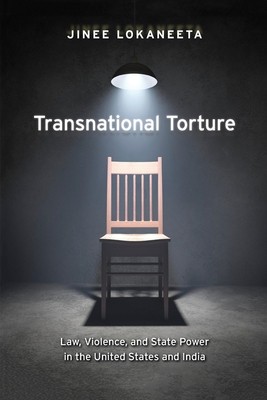
- We will send in 10–14 business days.
- Author: Jinee Lokaneeta
- Publisher: New York University Press
- ISBN-10: 1479816957
- ISBN-13: 9781479816958
- Format: 15.2 x 22.9 x 1.6 cm, softcover
- Language: English
- SAVE -10% with code: EXTRA
Reviews
Description
Transnational Torture by Jinee Lokaneeta reviewed with Prachi Patankar on the blog Kafila.
Evidence of torture at Abu Ghraib prison in Iraq and harsh interrogation techniques at Guantánamo Bay beg the question: has the "war on terror" forced liberal democracies to rethink their policies and laws against torture? Transnational Torture focuses on the legal and political discourses on torture in India and the United States--two common-law based constitutional democracies--to theorize the relationship between law, violence, and state power in liberal democracies.
EXTRA 10 % discount with code: EXTRA
The promotion ends in 17d.07:53:52
The discount code is valid when purchasing from 10 €. Discounts do not stack.
- Author: Jinee Lokaneeta
- Publisher: New York University Press
- ISBN-10: 1479816957
- ISBN-13: 9781479816958
- Format: 15.2 x 22.9 x 1.6 cm, softcover
- Language: English English
Transnational Torture by Jinee Lokaneeta reviewed with Prachi Patankar on the blog Kafila.
Evidence of torture at Abu Ghraib prison in Iraq and harsh interrogation techniques at Guantánamo Bay beg the question: has the "war on terror" forced liberal democracies to rethink their policies and laws against torture? Transnational Torture focuses on the legal and political discourses on torture in India and the United States--two common-law based constitutional democracies--to theorize the relationship between law, violence, and state power in liberal democracies.


Reviews